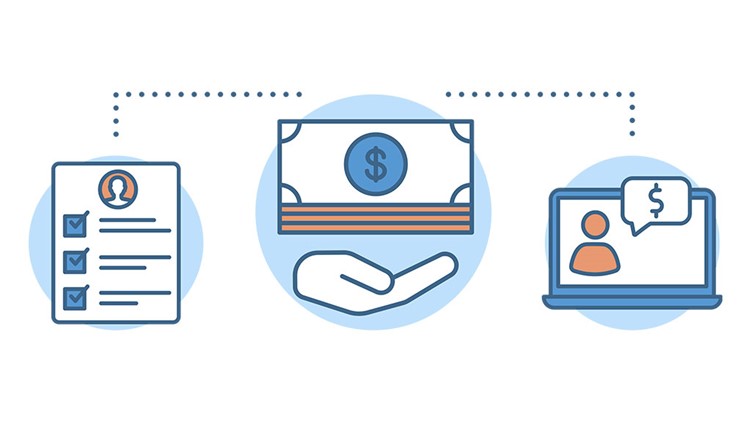by Socheata Ten EA, LLC | Feb 21, 2023 | Tax Tips and News
Filing an amended return used to mean completing a paper form, regardless of how taxpayers submitted the original return to the Internal Revenue Service. During the pandemic, paper-filed returns presented processing challenges that contributed to a historic backlog at the Internal Revenue Service.
Nearly two years after the IRS first began allowing electronic filing for Forms 1040-X, there is more good news for the roughly 3 million taxpayers expected to amend this year. Last week, the IRS announced that direct deposit is now available for refunds issued to taxpayers who file an amended return.
Why is the IRS now able to offer direct deposit for amended returns?
The IRS says recent system updates made the implementation of direct deposit for amended tax returns possible. This development represents the agency’s continued push to improve customer service, an effort ultimately bolstered by increased funding from legislation like the Inflation Reduction Act.
“Those filing amended returns can now enjoy the same speed and security of direct deposit as those filing an original Form 1040 tax return,” the IRS explains. “Taxpayers filing an original tax return using tax preparation software can file an electronic Form 1040-X if the software manufacturer offers that service.”
Will electronic filing and direct deposit help the IRS process amended returns faster?
The short answer is “no.”
The IRS is required to manually process all amended returns, which takes an average of 20 weeks, irrespective of the chosen filing method. However, the IRS says choosing e-file and direct deposit “cuts out the mail time” and “provides a convenient and secure way to receive refunds faster.”
Can I electronically file amended returns with Drake Tax®?
Drake Software customers do not have to wait for a program update to provide direct-deposit services to clients filing Forms 1040-X. Drake Tax has supported direct deposit for amended returns since the IRS announced its availability.

Source: IR-2023-22
– Story provided by TaxingSubjects.com
by Socheata Ten EA, LLC | Feb 18, 2023 | Tax Tips and News
In 2022, millions of Americans received special state-issued payments designed to provide economic relief to residents struggling with financial burdens exacerbated by issues ranging from the pandemic to natural disasters. One week after urging recipients to postpone filing their returns, the Internal Revenue Service has issued official guidance regarding the federal taxability of those payments.
Last Friday, the IRS clarified that one-time state payments that address general welfare or disaster relief would not be considered federally taxable. While some of these payments will automatically benefit from the agency declining to challenge their taxability, others must meet additional criteria to qualify.
Why did the IRS decide these payments were not federally taxable?
The IRS says a number of factors influenced their decision, including the start of filing season and the one-time nature of the payments. According to the agency, this decision ultimately serves “the interest of sound tax administration.”
Which special state payments are affected?
The following special state payments issued in 2022 will not be considered federally taxable, according to the State Payments page on IRS.gov:
The IRS says this treatment will only apply in Georgia, Massachusetts, South Carolina, and Virginia if recipients claimed the standard deduction or received no tax benefit when itemizing.
There could be some confusion in California
In January, the California Franchise Tax Board issued federal Forms 1099-MISC to taxpayers who received a Middle Class Tax Refund payment of $600 or more. While the MCTR is not considered taxable income at the state level, the board likely anticipated that the IRS would require taxpayers report these payments as federally taxable income.
Since many California taxpayers will likely have received these forms weeks ago, early filers may have incorrectly reported the payments as income. How the federal tax agency will handle those returns remains to be seen.
Source: IR-2023-23
– Story provided by TaxingSubjects.com
by Socheata Ten EA, LLC | Feb 15, 2023 | Tax Tips and News
As part of the Inflation Reduction Act of 2022, lawmakers made changes to the Clean Vehicle Credit that were meant to encourage the purchase of U.S.-made electric and fuel cell vehicles. Unfortunately, the criteria for qualifying vehicles has proven confusing for some taxpayers.
To provide clarity for those interested in claiming the credit, the Internal Revenue Service issued proposed regulations for final assembly and MSRP requirements earlier this year. That effort was continued last week, when the agency announced new guidance updating the vehicle classification standard that defines the different types of qualifying vehicles.

How was vehicle classification information for the Clean Vehicle Credit changed?
The vehicle classification standard for vans, sport utility vehicles, pickup trucks, and passenger vehicles now includes the fuel economy labeling regime determined by the EPA Administrator. As a result of this change—and to ensure taxpayers can readily find qualifying information—the IRS updated information under five FAQ topics:
However, the General Overview of Taxpayer Reliance on Guidance Published in the Internal Revenue Bulletin and FAQs page on IRS.gov notes that FAQs are not interchangeable with officially published guidance from the Internal Revenue Bulletin.
While the agency generally sees FAQs as merely a means of “quickly [communicating] information to the public on topics of frequent inquiry and general applicability,” they note “a taxpayer’s reasonable reliance on an FAQ (even one that is subsequently updated or modified) is relevant and will be considered in determining whether certain penalties apply.”
Source: IR-2023-18
– Story provided by TaxingSubjects.com






 Socheata Ten EA, LLC
Socheata Ten EA, LLC